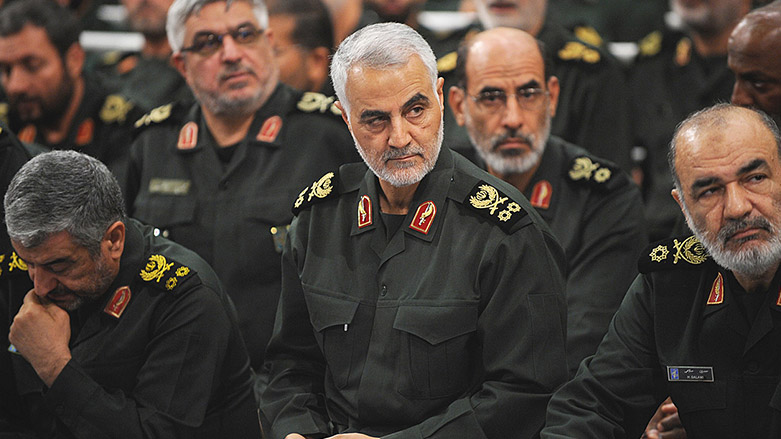CIA reveals warning to Iran on its military interference in Iraq

ERBIL, Kurdistan Region (Kurdistan 24) – Iran’s Revolutionary Guard Corps’ (IRGC) Commander Qassem Soleimani was warned by the US regarding the Islamic Republic’s increasingly threatening behavior in Iraq, according to a top US official.
CIA director Mike Pompeo on Saturday revealed he had sent a letter to the Iranian Quds Force’s leader, Soleimani, raising concerns that his forces might attack US forces in Iraq, Reuters reported.
“What we were communicating to him in that letter was that we will hold him and Iran accountable for any attacks on American interests in Iraq by forces that are under their control,” Pompeo told a panel at the annual Reagan National Defense Forum in Southern California.
“We wanted to make sure he and the leadership in Iran understood that in a way that was crystal clear.”
Pompeo, who took over the CIA at the start of the year, said Soleimani refused to open the letter, which was also confirmed by Iranian websites.
A few days ago, Iranian media and websites published a video clip of General Soleimani and said he had recently been photographed near the town of Mayadim in the eastern suburb of Deir al-Zor. The video showed Soleimani on one of the front lines directing a group of fighters, including Syrian officers, against remnants of the Islamic State (IS).
In November, a report by the Study of War concluded that current US policy “fails to constrain Iran,” which “continues to consolidate its presence along the Golan Heights through a network of proxy forces while retaining significant positions in Southern Syria.”
During the 9th Halifax International Security Forum in Canada, Head of the Kurdistan Region’s Department of Foreign Relations Falah Mustafa Bakir raised alarm bells about the specter of Iranian interference in regional politics.
“Tehran wants to become a regional superpower. Iran is the most influential country in Iraq today,” he said, noting that it had attacked western interests when it assaulted the Kurdistan Region, using its network of Iranian-supported Shia militias.
On Oct. 16, Iraqi forces alongside the Hashd al-Shaabi, in an operation orchestrated by Qassem Soleimani, attacked Kirkuk and other disputed territories. US spokesmen claimed to have no knowledge of Soleimani’s role or that of the Shia militias—although Pompeo subsequently confirmed both.
Since then, there have been a number of Hashd al-Shaabi militias, backed by Iran, who have threatened to target US forces once the fight against IS was over.
Dawa Party leader and former Iraqi Prime Minister Nuri al-Maliki echoed this sentiment last week, saying American presence in Iraq was causing instability and calling on the withdrawal of US troops.
“The stability of Iraq does not serve America and its allies,” he said, adding that Washington was “working on the instability of Iraq to maintain its existence in a manner of permanent occupation.”
